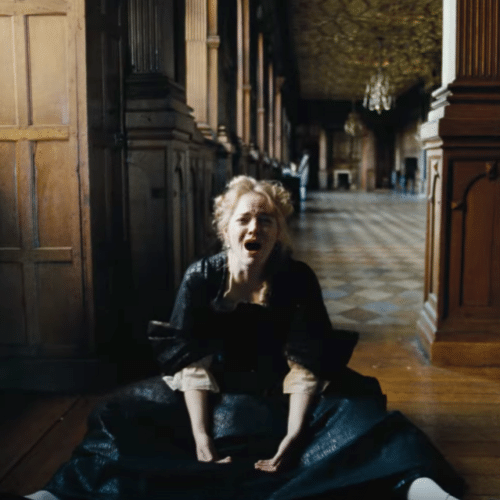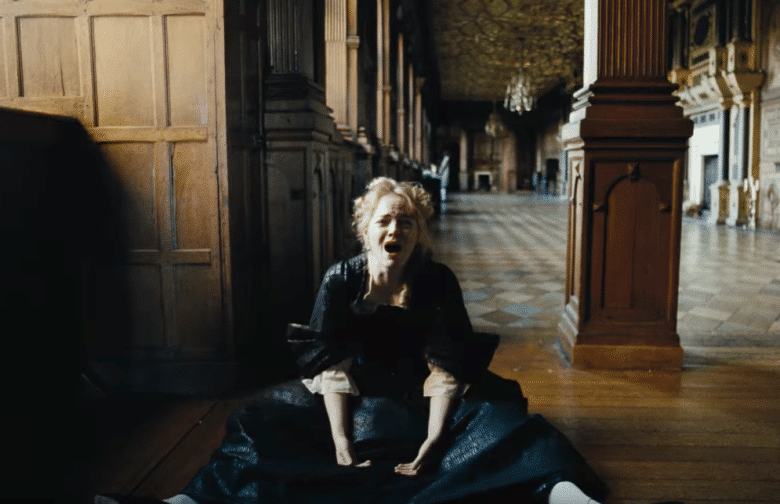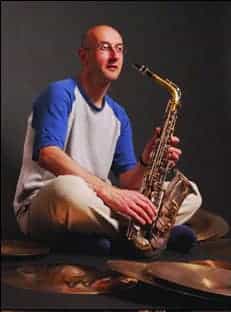Gout, lesbians and contemporary music: which film?
mainWe’ve been to see The Favourite, which is very educational if you suffer from gout or are interested in same-sex activities.
What caught my ear were some seriously gritty sounds by, it transpires, the British composer Anna Meredith, who appears to get no acknowledgement at all on the meanest, most chaotic and least legible credit roll I have ever seen.
She deserves better.







You’re right that the credits are dreadful, front and back. But on IMDb.com, Anna Meredith is not included in the music credits, nor does she mention The Favourite at all on her own website, where she does rather brag about her first soundtrack, to some film called The Eighth Grade. If she had some part in this film, it seems it must have been rather peripheral.
From what I have read it is historically illiterate and tedious. The director seems proud of his ignorance
‘Ignorance is a precious flower. Touch it and the bloom is gone.’ (Oscar Wilde)
It is a film and not intended to be a lesson in history. Think Amadeus. Tedious it was not. You should see it before judging.
Amadeus may not be strictly historically accurate, but Peter Schaffer has made it clear that his script uses the relationship between Mozart and Salieri as a means of exploring philosophical ideas. At the heart of the play is the question, why has God bestowed this gift of genius upon Mozart, who seemingly so little deserves it, and not upon Salieri, whose Catholic piety has been rewarded only with mediocrity?
Very much agree. I hated the film when I first saw it as I was younger and foolishly on a high horse about historical accuracy. With time I came to see how brilliant Shaffer dug into the complex relationship between Mozart and Salieri to explore how audiences and history had relinquished Salieri to the dustbin of mediocrity. I have heard only two Salieri operas (Danaides and Horaces) and both are fine and stand well on their own. But in comparison to what Mozart achieved at the same time, what from that period stands up to Nozze or Giovanni? When I saw the play at the National a few years ago, the historical inaccuracies never intruded as they had when I first saw the film. In the same way, The Favourite explores a complex triangle of Anne, Sarah and Abigail. The three performances are rich and honest – well worth seeing. If you want historical accuracy, read Anne Somerset’s biography of Queen Anne – it is very well written (I am only in the early chapters). But you can also ignore history and see the film for its terrific central performances.
Possibly I’ll see the film. The Royal Shakespeare Company did a very fine play about Queen Anne which explored basically the same thing (the relationships between the three main female characters) but without inventing the lesbian sex and pet rabbits.
Peter Shaffer actually leans heavily on Pushkin’s play “Mozart and Salieri” and didn’t explore much new territory – on the contrary, he played it ridiculously safe, in a well worn-out tradition.
And the ‘plot’ is nonsensical – Salieri helped Mozart, they got on quite well. Salieri was successful, had a well-paid job at the court, and had no reason to feel threatened. He suffered terribly because of the rumour that developed after M’s death that he had poisoned him. All that stuff about Salieri feeling religiously wronged because of ‘bad’ Mozart being so gifted, is pure invention. It also should be mentioned that Mozart as a person was not such infantile crank as depicted in the kitsch movie Amadeus. Both Mozart and Salieti were, as men, perfectly average decent 18C guys. Only one of them happened to be also a genius. The spirit goes where it wants without the slightest consideration of worldly standards.
It is questionable whether this type of poppy confections would contribute anything to the appreciation of any female exercises:
https://intothegreatwideopen.nl/programmaonderdeel/anna-meredith
https://www.youtube.com/watch?v=36FNJiP8GWk
https://www.youtube.com/watch?v=SLtBkqRsGLY
https://www.youtube.com/watch?v=Vajhs2wBeCU
This lady represents the worst of what parades as ‘contemporary music’ today, a kind of aural populism born from the most primitive states of mind.
“or are interested in same-sex activities.”
I don’t recall any reviews in the gay media recommending a film if you “are interested in mixed-sex activities”.
Do rest this sort thing, Norman, sweetie. There are humane people whose minds don’t go all a-prim and sarky at such things.
I had imagined that the reason why Norman was drawing attention to the lesbian aspect of this film was because it is so gratuitous and historically inaccurate. Everything that I have ever read about Queen Anne suggests that she was dull, conservative, devoutly religious (to the extent that the Protestant faith was her foremost interest both as a queen and as a woman), and devoted to her husband (she became pregnant by him at least 17 times and contemporaries report that she insisted on sharing his bed throughout his long illness and that she kissed him as he took his last breath). Furthermore, both Queen Anne and Sarah Churchill were horrified when they were separately alleged to be lesbian or bisexual. In short, not only is there no compelling evidence that Queen Anne engaged in lesbian activity, there is in fact compelling evidence that she did not. It therefore seems not unreasonable to highlight the lesbian aspect of this film as something quite extraordinary.
The extensive repeated cello note (alternated with plucked note then piano note) section nearly made me walk out of the film – intensely irritating and did nothing for the atmosphere of the film.
The rest of the score and the classical music used, I loved.
Arco/sul ponticello alternating with pizz harmonic was Luc Ferrari not Anna Meredith who produced some Max Richter derivative.
I agree, that it didn’t really work in terms of film music. Irritating rather than adding tension. On its own terms quite interesting though.
As yet, this director isn’t as inspired in his use of music as François Ozon. However, I did welcome the fact that he avoided overly famous examples of Classical music. I nearly walked out of quite a good film recently (‘Manchester by the Sea’) which used the Albinoni Adagio.
All the Meredith music was pre-existing and written for the concert platform. It wasn’t written for the film so can’t really be termed film music, as such. Her Songs for the M8 is in the film but not on the soundtrack album.
Much as Crimes and Misdemeanors comes to mind whenever I hear the Schubert Quintet, the Favourite will pass through my thoughts when listening to the second piano trio. I liked both films but would have preferred they not infiltrate my listening.
I enjoyed the film, but you are right. The credits are mind blowingly difficult to read!
A film by Sergio Leone?
The credits were abysmal. However, are you sure you’re referring to Anna Meredith’s contribution as it was anything but gritty ( a modern take on the 4 Seasons and barely noticeable)?
I think it’s Luc Ferrari who you mean. I’m referring to the soundtrack on Spotify….
The same sex elements were apparently without historical basis. The music is all (almost all?) from later periods …
But at least there were fine costumes and sets, even sometimes ‘same sets’ … so Queen Anne: and I thought it was just furniture!
Frankly if I had written the music for this dreadful piece of unhistorical nonsense, I would have wanted my name kept out of the credits!
Extracts from two existing Meredith works were used in this film: her Vivaldi-inspired “Anno” and the string quartet – “Songs for the M8”. It’s not on her site but she has been talking about it on her social media accounts.
An o.k. film, very self-aware of its auteurship, annoyingly so (or perhaps I’m just jaded). Excellent acting generally. Weird directorial decisions; could any male actually give forth (as it were) while his new wife handles him distractedly nattering obsessively about court politics and not even looking at him?
My main irritations were twofold: the banal contemporary choreography in the ball room scene; so unnecessary, so embarassing, when daring dances of the day would’ve been more accurate and could’ve been filmed to imply scandal and sauce. Why spare nothing on the period detail in furniture, costume, petticoats, warts and wigs and yet use out-of-place dance elements? Absurd.
Secondly, and far worse, the banal music choices. Jarringly inappropriate organ chords, irritating alternation of period and non-period string music, über-irritating use of the Schubert Trio as an idée fixe … this is a director with only a child’s understanding of the power of music. I’m not a period purist by any means but how on-point was the scene with the kids playing Purcell on period instruments, vs stupid ignorant use of Schubert? Why not go whole-hog and use a brilliant period-instrument score like the late Antoine Duhamel did for “Ridicule”?
Dear Gibner, You virtually wrote my own critique, word for word. Thanks!
From memory, I believe the ‘Schubert Trio’ was the Schumann Quintet.
Schubert, however, came in for a kicking at the denouement when the B flat Sonata Andante sostenuto (using a top C sharp that is not customary in modern performances) was repeated on a loop.
It is a very fine film that is consistently striking visually and further elevated by brilliant performances of all three leading ladies.